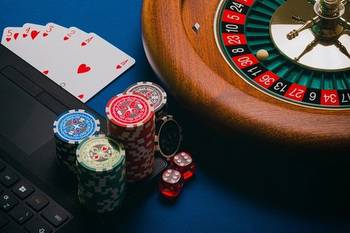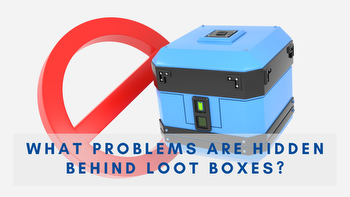Study Shows Asian Online Gamers Keen On Buying Loot Boxes
A recent study shows over 70 percent of Asians living inNew Zealand who have played online video games in the last12 months have purchased loot boxes at least once, or asimilar reward mechanism to increase the chance ofwinning.
The study, conducted by Trace Research andcommissioned by Asian Family Services, looked at the onlinegambling and gaming habits of Asians living in NewZealand.
KellyFeng, Chief Executive of Asian Family Services, says thestudy shows online gamers are also at risk of gamblingharm.
“Video gamers are so competent online whichcan lead them to explore gambling as well,” shesays.
“The study shows that over 59 percent ofonline video gamers have engaged in online casino gamblingsimulations which can lead to real money gambling. Thesegamers are significantly more likely than average to befrequent gamblers on online casinos.”
Data shows thedemographics of those who are more likely to play onlinevideo games include Indians, other Asians (excluding Chineseand Filipino), aged 18 – 29 years, male, and those withhigher incomes of $100k or more per annum.
The studyshows over 80 percent of Asians have engaged in onlinegambling and gaming activities in the last 12 months withthe most common activities being Lotto or Instant Kiwionline (73.8%), followed by online video gaming (50.8%), andTAB sports betting online (41.1%).
Kelly Feng sayswhen it comes to gambling harm the study revealed that largenumbers of Asians living in New Zealand did not know whereto seek help if they needed it.
“It’s reallyconcerning that over 56 percent of Asians in this studydidn’t know where to go to get support if their gamblingwas problematic,” she says.
“Three major barriersto seeking help were identified and it shows there islimited knowledge of support services, a lack of awarenessabout the severity of problems and limited understandingabout counselling and how effective it is.”
“Thereis also huge stigma associated with gambling in the Asiancommunity which is a real barrier tohelp-seeking.”
View the full report New ZealandAsian Responsible Online Gambling Report 2022here.
AsianFamily Services provide free information, advice and supportfor anyone affected by harmful gambling. Services areconfidential, professional and non-judgemental. Ph 0800 862342
Background
Whatare loot boxes?
Since about 2016 loot boxeshave become increasingly common on all gamingplatforms.
They are digital containers holding randomitems that players can use in a game that operate a bit likea ‘lucky dip’. Players don’t know what they aregetting until they’ve opened the box. These digital boxescontain items like a new character outfit, weapon, orspecial ability. Often these games encourage players tospend real money on loot boxes, though they can sometimes beearned by playing the game. Good items are rare, worthlessitems are common.
Are loot boxes consideredgambling?
A 2017 study found that almost halfof the loot boxes reviewed met the psychological criteria tobe considered gambling. Several studies found people withgambling problems tend to spend more on loot boxes thanpeople without gambling problems. That means people who havea gambling problem may pay for loot boxes more than otherpeople.
The financial stakes can be high. At theextreme end, large sums of money are being spent – up to$1500 for a single item.
In New Zealand, theDepartment of Internal Affairs, has deemed that loot boxesdo not meet the legal definition ofgambling.
How are loot boxes similar togambling?
Both loot boxes and gambling oftenrely on intermittent rewards. That means winning what youwant only now and then. This is a powerful way to encouragesomeone to continue doing something. It teaches a person tofeel that even though they didn’t get what they want theyare one step closer if they just keep trying. Essentially, a“loss” is seen as a step on the pathway to a win. Thiskind of behaviour is quick to learn and hard tounlearn.






































